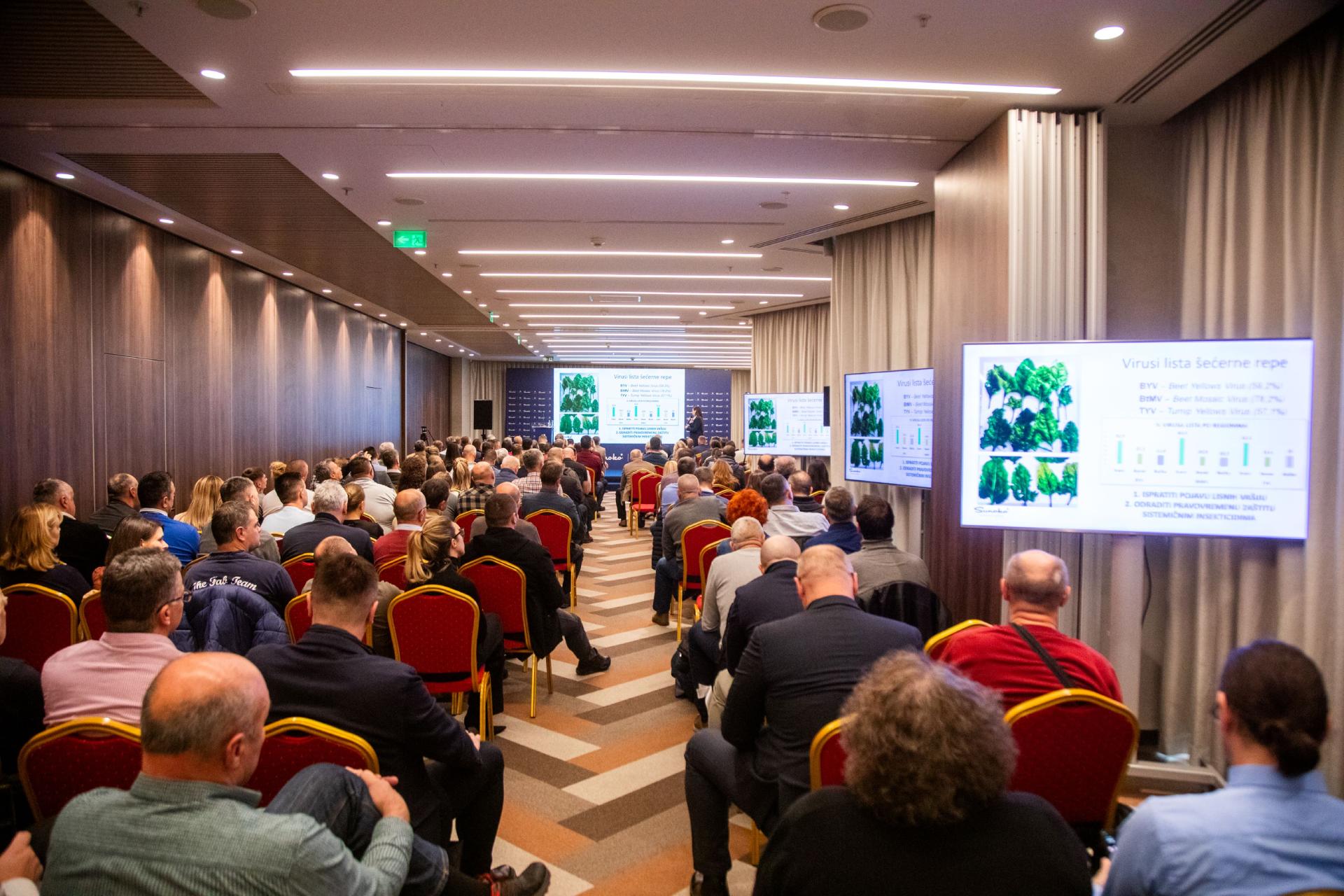Sunoko, a member of MK Group, announced that it will produce around 180,000 tons of sugar in its processing centers this year. Despite challenging weather conditions and record-high summer temperatures, this year’s sugar beet yield is estimated at nearly 1.4 million tons, with an average yield of about 42 tons of sugar beet per hectare. The best yield was achieved in Srem, amounting to about 51 tons per hectare, while in Bačka it was around 42 tons per hectare, and in Banat, the yield was the lowest at just 33 tons per hectare.

“The biggest challenge in sugar beet production, as well as in crop production in general, this year has been climate change. Extreme drought was accompanied by record average temperatures in July and August. The climatic conditions affected the estimated sugar beet yield, reducing it by about 25% compared to the potential it had in the first half of June. The effects of drought on sugar beet were most visible in the form of leaf drop of up to 90%, leading to plant wilting. On the plots where full agronomic practices and protective measures recommended by our Research and Development Center were applied, exceptional results were achieved, demonstrating that we have the technology even for such conditions,” said Slobodan Košutić, director of Sunoko.
Košutić emphasized at the Sugar Beet Seminar, traditionally held at the end of the year for partners, that the quality of the raw material was unsatisfactory, and seemingly healthy sugar beet roots had a high content of invert sugars. Part of the sucrose was broken down into simple sugars, which led to significant losses during processing. Rotten beets, mostly in Banat and Srem, necessitated a significantly different organization of harvesting, logistics, and reception methods in factories. It was necessary to adjust the technological processes in sugar factories to the compromised quality of sugar beet, which generated a significant increase in sugar production costs.
“The focus of the Research and Development Center’s work has been on addressing the problem of gummosis in sugar beet roots and improving leaf protection against cercospora. Trials were set up to examine the effectiveness of insecticides and the timing of application to control insects that transmit phytoplasma. This is a pathogen that causes rapid wilting of leaves, accompanied by wilting of the roots, which lose firmness, soften, and become ‘gummy.’ In these conditions, the plant is more susceptible to attacks from other secondary pathogens, resulting in root rot. The set of measures in the fight against phytoplasma vectors, defined by the Research and Development Center last year, yielded above-average results on the plots where they were applied, contributing to excellent root yields even under this year’s conditions,” stated Saša Rajačić, director of the Research and Development Center.
At the seminar, lectures were held by eminent experts in the field of sugar beet protection and mineral nutrition. Sunoko will continue to support agricultural producers next year to ensure a safe and stable supply of sugar to the Serbian market.

